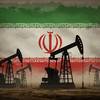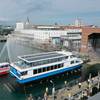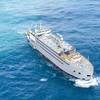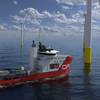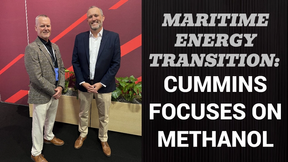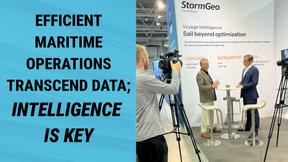Deepwater Port Posorja 1st Phase Opened
The $538 million first phase of the new Deepwater Port of Posorja in Ecuador by global trade enabler, DP World, is now completed and successfully operational.
The overall $1.2 billion project will replicate Dubai's Jebel Ali Port and freezone, making Ecuador a trade and logistics hub for South America's west coast, and opening a gateway for large container ships with capacities exceeding 10,000 TEUs.
Sultan Ahmed Bin Sulayem, Group Chairman and CEO, DP World, visited the facility to assess progress of the project, which is one of the largest international investments in Ecuador. The port has already been operational for two months, handling thousands of containers and more than a dozen post-panamax ships.
Posorja is expected to welcome an annual volume of 750,000 TEUs during the first phase, and 1.5 million TEUs at full port capacity. The Port is equipped with state of-the-art technology, world-class infrastructure, and the largest gantry cranes in South America.
Sultan Ahmed Bin Sulayem, DP World Group Chairman and CEO and Chairman of Ports, Customs & Free Zone Corporation, said: “The beginning of operations at Posorja is a defining moment in Ecuador’s economic growth. The new Port and Special Economic Zone will significantly improve Ecuador’s global competitiveness and position the country as a dynamic business hub for the west coast of South America, following the model that has been tried and tested in Dubai and around the world.”
From the very beginning of this project, we have forged a close relationship with our partners from the public and private sectors. The last two months of operations have shown the importance and capability of the Port to importers and exporters, shipping lines and local authorities as we work hand-in-hand with our partners to enable trade and develop innovative logistics solutions.”
Phase two of DP World’s project in Ecuador will be the development of ‘Posorja ZEDE’; a special economic zone (SEZ) for maritime, logistics and light industrial businesses. The freezone will be modelled on Dubai’s Jebel Ali Port and freezone in the United Arab Emirates, which is home to more than 7,500 companies, which together are responsible for around 35% of Dubai’s gross domestic product (GDP) and employ more than 135,000 people.
The Jebel Ali model has already been successfully replicated around the world including London Gateway in the UK and the greenfield terminal in Caucedo, Dominican Republic.
Once completed, the 1,000,070m² special economic zone will serve the various needs of investors and traders seeking an integrated location that can act as a manufacturing and distribution hub for their products.
Nicolas Gauthier, CEO of DP World Ecuador said: “The Port is being developed in line with international best practices, and is already creating thousands of direct and indirect job opportunities that are backed by robust social programs. A key example of this is establishing gender equality policies that have paved the way for the first female crane operators in Ecuador.”
Vessels that in the past could not come to Ecuador due to size restrictions will now be offered a safe, productive and efficient call in Posorja. The new port is expected to be a catalyst for the creation of new businesses in Ecuador.
The Deepwater Port of Posorja is a strategic partnership between the public sector and the private sector. DP World is responsible for the design, financing, construction and operations of the facility for a period of 50 years, following which the port will be handed over to the state.
The project includes a deep water port with a capacity of 1.5 million TEUs, in addition to a 21-km access highway and a 21 nautical mile maritime access channel that is 16.5 meters in depth.



